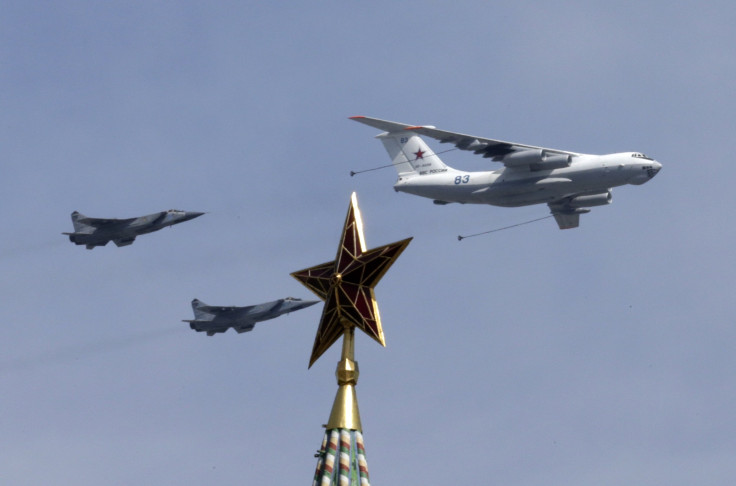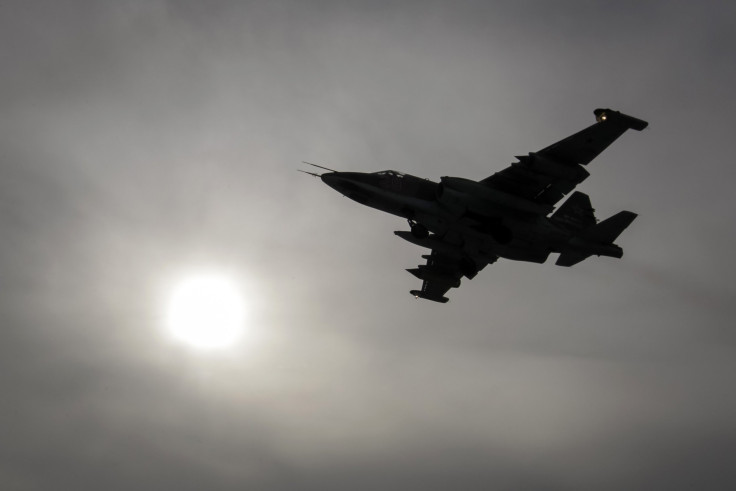NATO Jet Interceptions Increase: Russian Planes Responsible For Bulk Of Airspace Violations, Members Say

NATO nations have been reporting a rise in airspace violations and occasions when jets are scrambled to intercept foreign aircraft, as geopolitical tensions increase between the United States, Europe and Russia. Alliance members performed more than 500 scrambles over Europe in 2014, quadrupling the number from the previous year, reported the Guardian. More than 85 percent of the instances were in response to Russian air activity.
Two Russian bombers were intercepted July 4 within 40 miles of the coast of California by U.S. F-22 fighter jets, the first time American jets intercepted Russian military aircraft off California since 2012, reported CNN. While the Kremlin says it is merely responding to provocations from European countries, the North Atlantic Treaty Organization has recorded more than 300 occasions this year that fighter jets of member nations have needed to scramble to intercept foreign planes close to sovereign airspace, in some of the highest numbers reported since the end of the Cold War.

The Russian flights must be seen within the context of “a drastic increase in the activity of foreign reconnaissance and combat planes near Russian borders," a Russian official told the Guardian, adding that the number of NATO sorties has doubled this past year.
But Lt. Col. Jay Janzen, chief of media operations at NATO's Supreme Headquarters, suggested that Russia was engaging in false propaganda, misrepresenting the nature of NATO flights. “Scrambles are launched in response to Russian activity," he told the Guardian. "The sole aim is to preserve the integrity of NATO European airspace and to safeguard NATO nations from air attacks.”
Russian military aircraft have been challenging Euro-American air control with their unannounced approach and unwillingness to communicate on the transponder or share flight plans. A North American Air Defense spokesman declined to tell CNN that the Fourth of July interception was a threat, but said the incident was "potentially destabilizing" as the Russian bombers are nuclear-capable and they did not announce their approach.
Beyond Russia, scrambles have increased globally, with Japan increasingly intercepting Chinese aircraft and Greece reporting a greater number of airspace violations by Turkey (a fellow NATO member), the Guardian reported. Despite the increased number of aircraft interceptions, NATO members plan to decrease the number of planes used to monitor the Baltic Sea this year, after sharply increasing the number in 2014 in response to the civil war in Ukraine.
© Copyright IBTimes 2025. All rights reserved.






















